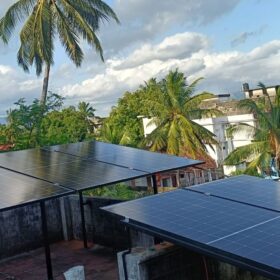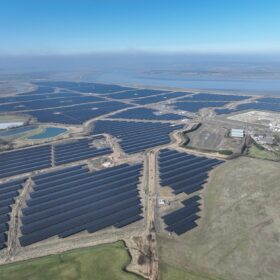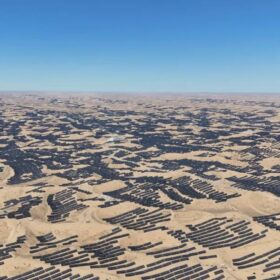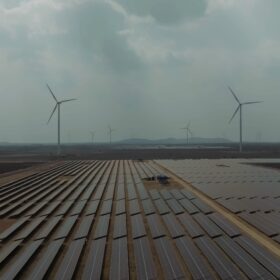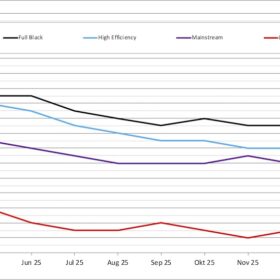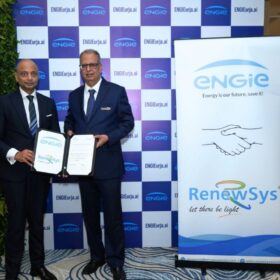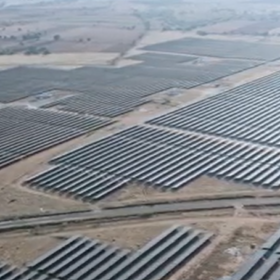KLK Ventures secures 2,000+ solar pump order in Karnataka, expands residential PV in Goa
Solar solutions provider KLK Ventures has secured a contract to supply more than 2,000 solar water pumps under the Karnataka Renewable Energy Development Limited (KREDL) program.
Growatt launches 5 kWh AC-coupled balcony storage system
The IP66-rated Aura 5000 system features bidirectional inverter functionality and an AC output of up to 2.5 kW.
Saudi Arabia could hit net-zero emissions by 2060, with 151 GW of solar
Saudi researchers outlined pathways for Saudi Arabia to reach net-zero power sector emissions by 2060, requiring up to 3.6% of land – mostly for onshore wind – with 151.3 GW of solar PV covering only 0.16% of the country.
Over 2.08 million rooftop solar systems installed under PM Surya Ghar scheme as of Dec. 2025
More than 2.08 million rooftop solar systems have been installed across India under the PM Surya Ghar: Muft Bijli Yojana as of Dec. 2025, according to the Ministry of New and Renewable Energy.
India’s Union Budget 2026–27 removes customs duty on solar glass inputs, lithium battery cell machinery, and critical minerals processing equipment
India’s Union Budget 2026–27 extends basic customs duty (BCD) exemptions on the import of capital goods used for lithium-ion cell production for battery energy storage systems (BESS), as well as capital goods required for processing critical minerals. It also removes the 7.5% BCD on sodium antimonate used in solar glass manufacturing.
UK added 2.6 GW of solar in 2025, record year for rooftop
Deployment hits ten year high in the United Kingdom with connection of largest plant to date and a ramping up of small-scale installations. Government targets accelerated deployment with new support for rooftop installations and ongoing CfD auction.
China adds 315 GW of solar in 2025
China installed a record 315 GW of new solar capacity in 2025, lifting cumulative installed PV capacity to 1.2 TW and pushing non-fossil power sources past thermal generation for the first time.
U.S. authorities find no definitive evidence of hidden devices in Chinese solar inverters
New documents reveal US government found only two cases of communications in Chinese inverters that differed from official documentation. The discrepancies were deemed “non-malicious” and “non-intentional” by investigators.
India requires $145 billion in annual energy investment to bridge growth and climate targets
India must mobilise around $145 billion in annual energy investment to sustain economic growth while pushing its net-zero ambitions. The bulk of this capital will be directed toward scaling up renewable power generation, grid infrastructure modernization, and energy storage, according to Wood Mackenzie.
Kosol Energie signs 360 MW Hoymiles microinverter deal for Andhra Pradesh residential rooftop solar projects
Kosol Energie has finalized a 360 MW microinverter supply agreement with Hoymiles Power Electronics Inc. for residential rooftop solar projects to be deployed across Andhra Pradesh.



